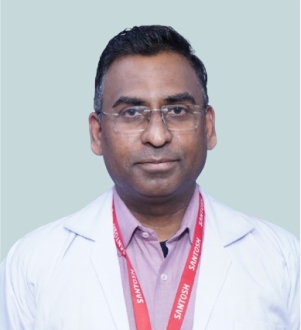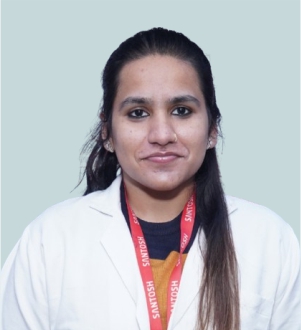Overview
Postgraduate education is a crucial step for medical professionals to acquire advanced knowledge and skills in their chosen specialty. The purpose of such education is to create specialists who can provide high-quality healthcare and advance the cause of science through research and training. The goal is to produce professionals who can recognize the health needs of the community, handle medical problems effectively, and remain up-to-date with the latest advancements in their field.
A postgraduate student must acquire the necessary skills to teach medical and para-medical students. The ability to teach is crucial for specialists to disseminate their knowledge and skills to the next generation of medical professionals. Additionally, students must learn the principles of research methodology and how to consult the library to stay up-to-date with the latest research in their field.
This document serves as a guideline for both teachers and learners to achieve the defined outcomes through learning and assessment. The document was created by subject-content specialists, and the Academic Committee's Reconciliation Board has attempted to ensure uniformity while preserving the document's purpose and content. While there may have been some compromise in syntax, the document's domains of learning remain under the heading of competencies.
Postgraduate education is essential to produce medical specialists who can provide high-quality healthcare and contribute to the advancement of medical science. It is crucial for postgraduate students to learn how to teach, research, and remain up-to-date with the latest advancements in their field. This document serves as a guide to ensure that postgraduate students acquire the necessary skills to fulfill their role as medical professionals.
Click here if you want to know about course fees.
Program Objective:
The primary goal of the MD course in Psychiatry is to produce a post-graduate clinician who can provide healthcare in the field of Psychiatry. The physician qualified in Psychiatry should be able to diagnose and treat psychiatric disorders, take preventive and curative steps for the disease in the community at all levels of health care and qualify as a consultant and teacher in the subject.
At the end of the MD course in Psychiatry, the student should be able to:
- Understand the relevance of mental health in relation to the health needs of the country
- Understand ethical considerations in the teaching and practice of Psychiatry
- Identify the social, economic, biological, and emotional determinants of mental health
- Identify the environmental causes as determinants of mental health
- Plan and deliver comprehensive treatment of a psychiatric patient using principles of rational drug therapy
- Plan rehabilitation of psychiatric patients suffering from chronic illness
- Clinically manage psychiatric emergencies efficiently
- Demonstrate empathy and humane approach towards patients and their families and respect their sensibilities
- Demonstrate communication skills of a high order in explaining management and prognosis, providing counseling, and giving health education messages to patients, families, and communities
- Develop appropriate skills to practice evidence-based psychiatry
- Demonstrate competence in basic concepts of research methodology and epidemiology
- Be aware of and take appropriate steps in the implementation of national mental health programs, effectively and responsibly
- Be aware of the concept of essential drugs and rational use of drugs
- Be aware of the legal issues in the practice of Psychiatry
- Be aware of the special requirements in the practice of Child and adolescent Psychiatry and Geriatric Psychiatry
- Be aware of the role of sex and gender in the practice of psychiatry
- Be able to determine the capacity and capability of the individual (especially children and adolescents) to identify and articulate a gender identity
Curriculum
Assessment:
There shall be four papers each of three hours duration.
- Paper I: Basic Sciences as related to Psychiatry
- Paper II: Clinical Psychiatry
- Paper III: Psychiatric Specialties
- Paper IV: Recent Advances
Clinical/Practical:
- Presentation of long case of Psychiatry
- Neurology short case
- A short case Psychiatry
- Viva –voce
Teaching & Learning Methods:
- Lectures: Lectures are to be kept to a minimum. They may, however, be employed for teaching certain topics. Lectures may be didactic or integrated. Didactic lectures are of least importance; small group discussion such as seminars, journal clubs, symposia, reviews and guest lecturers should get priority for theoretical knowledge. Bedside teaching, grand rounds, structured interactive group discussions and clinical demonstrations should be the hallmark of clinical/practical learning.
- Thesis writing: Thesis writing is compulsory.
- Research Methodology: The student should know the basic concepts of research methodology and biostatistics, plan a research project, understand ethical issues of research especially in vulnerable groups such as those with mental illness and intellectual disability as well as minors, be able to retrieve information from the library, use reference managers .
- Teaching skills: The post graduate students shall be required to participate in the teaching and training programme of undergraduate students and interns.
- Continuing Medical Education Programmes (CME): Each student should attend at least two CME programmes, in 3 years.
- Conferences: The student should attend courses, conferences and seminars relevant to the specialty, and encouraged to make presentation in conferences.
- Seminars: There should be a weekly seminar in which the PG students present material on assigned topics in rotation. It should be followed by discussion in which all trainees are supposed to participate. Generally, the topics covered should be those that supplement the formal teaching programme.
- Case Conference: A case conference should be held every week where a PG student prepares and presents a case of academic interest by rotation and it is attended by all the members of the Department.
- Psychosomatic Rounds: This is a presentation of a case of psychosomatic illness, or a medical illness with pronounced psychiatric problems. It should be held weekly in collaboration with various departments and attended by the faculty and the PG students of psychiatry and the concerned Department.
- Research Forum: There should be a monthly meeting of one hour each in which the PG students present their plan of research as well as the report of the completed work of their projects. The other research scholars/staff in the department also may participate in it. The faculty, PG students and the non-medical professionals should make critical comments and suggestions.
- Case presentations: All new in-patients and outpatients cases should be routinely reviewed with one of the Consultants. In addition, the PG student is required to present case material at routine rounds and other case conferences. Senior PG students will conduct evening classes on clinical topics.
- Extra-mural activities: The post graduate students are encouraged to attend certain academic activities in allied subjects held outside parent department e.g. seminars/lectures held at Departments of Sociology, Psychology, Neurology etc.
- Psychotherapy tutorials: These should be held in small groups supervised by a consultant, in which a case is presented by a PG student and psychotherapeutic management discussed.
- Clinical meetings: There should be intra - and inter - departmental meetings for discussing the uncommon / interesting medical problems.
Team

Dr. Amoolya Kumar Seth
Professor & HOD

Dr. Ravinder Kumar Bansal
Professor

Dr. Brijesh Saran
Associate Professor

Dr. Saloni
Assistant Professor

Dr. Avni Gupta
Assistant Professor

Dr. Abhay Singh Tomar
Assistant Professor
Career Prospective
A career in Psychiatry after completing an MD in Psychiatry is highly rewarding and challenging. MD in Psychiatry opens up several career opportunities in various sectors, such as healthcare, research, teaching, and more. Psychiatrists can work in private or public healthcare organizations, mental health clinics, hospitals, rehabilitation centers, and psychiatric hospitals. They can also work in the academic sector as professors, teaching students in medical schools or universities. Psychiatrists can choose to specialize in different areas, such as child and adolescent psychiatry, geriatric psychiatry, addiction psychiatry, forensic psychiatry, and more. With increasing awareness of mental health, the demand for qualified psychiatrists is on the rise, making it a promising career option.
